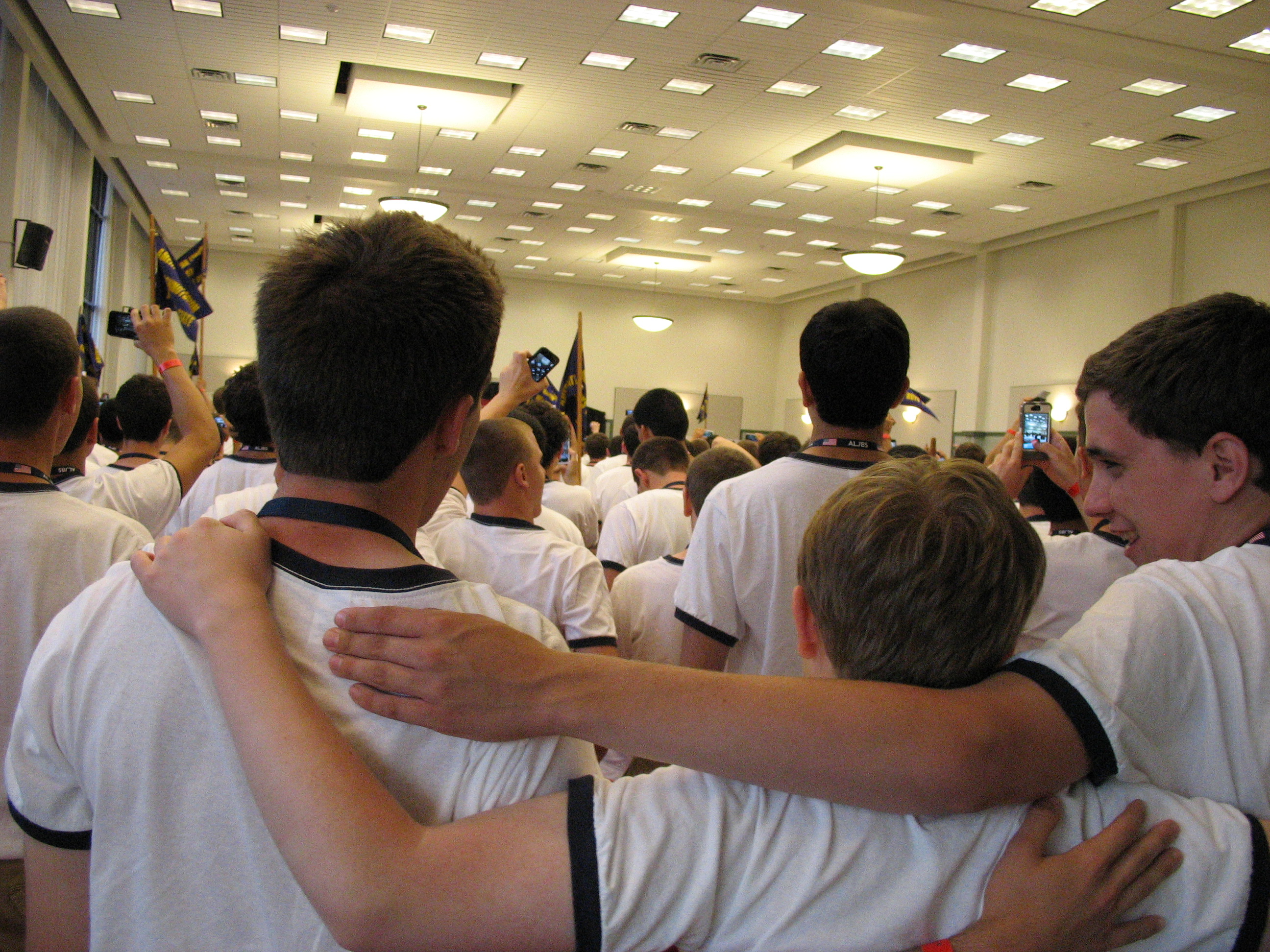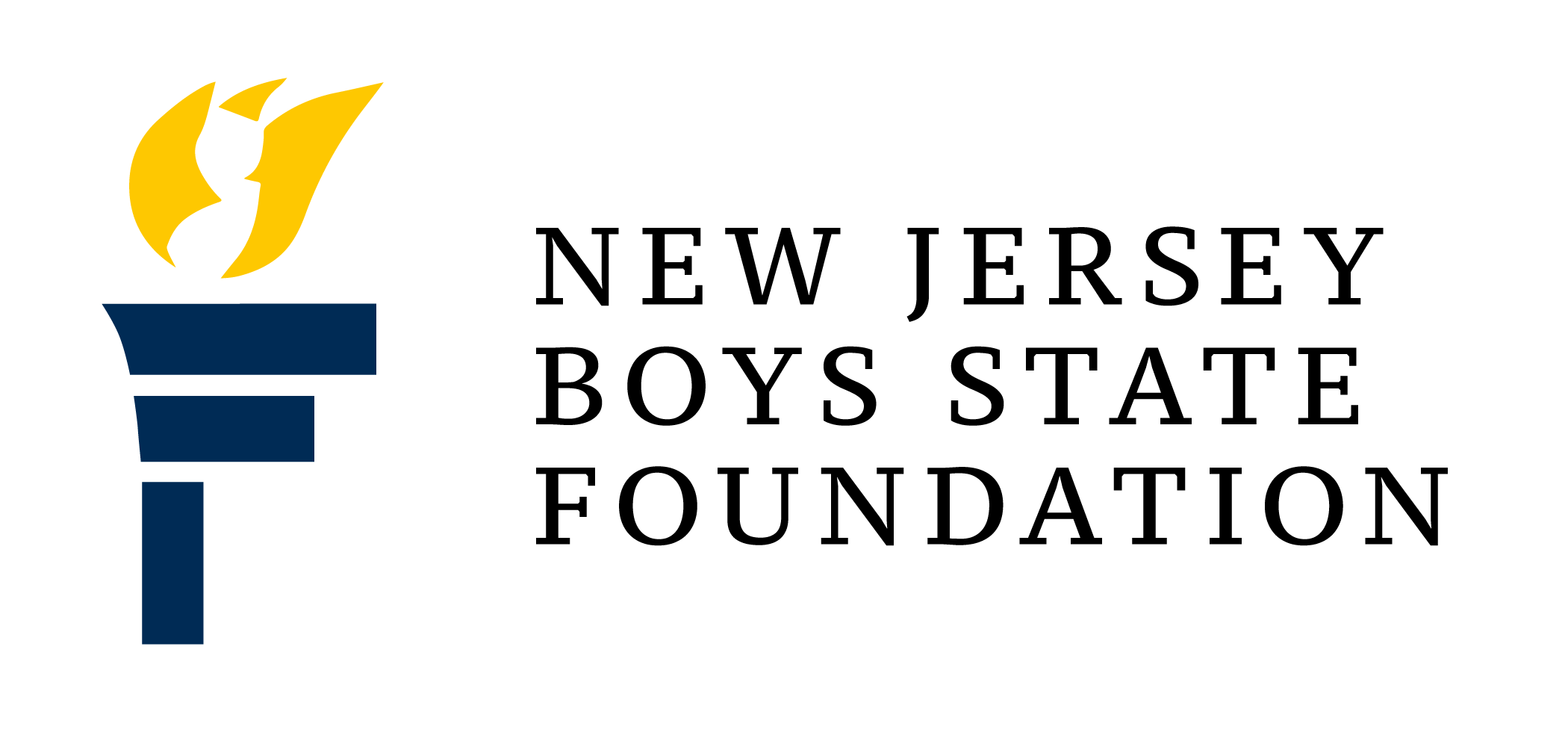News Archive

Today, between 3:00 PM and 5:00 PM, the schedule lists five separate responsibilities. In the Student Recreation Center, there is a seminar for newly elected (replacement) city officials and a few different sports competitions. Competitions in other sports are taking place all across campus. In the Fine Arts building, the Federalist and Nationalist State Party Executive Committees are discussing the party platform and campaign strategy for the upcoming gubernatorial campaign. In Sweigart Hall, the Boys State Legislature is in session (and discussing comprehensive gun legislation). Finally, the Boys State Band and Chorus are putting the finishing touches on songs for their concert tonight.
A few more things don't appear on the official schedule. City and county officials are hard at work on their city and county manuals, the staff of The Jersey Statesman is continuing work on tomorrow's edition, and the Marines are leading a PT challenge on the campus mall.
The sheer volume of options presents logistical problems for county athletic directors who are trying to staff their teams but it also forces delegates to choose. There is no way you can be in the state legislature and band or play a sport and do the Marine PT workout. You must choose one.
Choosing is hard. It's hard because we humans are risk-averse and like to keep as many options open as possible, even in situations where we clearly should focus on one.
Behavioral economist Dan Ariely demonstrated this with a simple game. Players were told to click one of three doors on a screen. Each click would earn them money but jumping from one door to another carried a slight penalty. The players had 100 clicks to earn the most money.
The best strategy is simple: quickly find the highest-paying room and stay there. Most players did this at first, but when Ariely and his fellow researchers tweaked the game so an unclicked door would start shrinking and eventually disappear, the players abandoned the optimal strategy. Instead, they desperately tried to keep all their options open, clicking doors that were almost closed and paying steep penalties for their movements.
The team ran the game again, this time allowing the players to reopen disappeared doors, effectively removing the penalty for not clicking on a door. The players were unmoved. Instead of changing their strategy, they behaved the same, trying to keep all doors alive.
Ariely's team realized that the players wanted to avoid the pain of loss rather than maintaining their flexibility. Loss aversion is a powerful motivation, one that manifests itself in many diverse situations. Think of the person who's trying to decide between potential suitors or multiple job offers.
But making choices is what life is, and that's what our statesmen have been learning all week. Each day, they've had their pick from a group of 6-9 seminars about careers in various fields. They've had to choose how they'll approach this week and now they're having to choose what job they want to do.
This is precisely what you're told not to do at this age. You are supposed to be adventurous, try new things, and explore all the possibilities open to you. Admittedly, it's wise advice. The human brain does not finish developing until around age 25, making it hard to discover what you truly are to do until that time. Until then, exploring is a good thing.
Unfortunately, we don't have the time to offer a whole lot of self-discovery. There are things to be done and painful choices will have to be made.
But as those choices are made, character is formed. This is what makes college such a transformative experience. For most people, it's the first time they are autonomous and they're making a lot of choices at once. For our statesmen, college will be the second time they've done that. The first is this week at Rider University.
Throughout the week, your sons, brothers, and friends are maturing and becoming able to self-govern. Tonight, each city will become a mock courtroom and try cases based on Boys State law violations. When the city moves from one location to another, the mayors of each city ensure that everyone is present and ready to move. At retreat, they report their city's whereabouts.
However, at the end of the day, they're still 17-year-olds, and they sing along loudly as the Boys State band plays "Gagnam Style." This is the strange dualism of ALJBS: the already but not yet. The statesmen are going to be adults and leaders soon. They aren't there yet but as they go through the week, we see both the leadership qualities that are starting to arise and the adolescence that they are in.
It would be easy to emphasize one of these but that's a dishonest method with grave consequences. See only the future leaders and you set up crushing expectations and ignore their current maturity. Focus on their youth and you neglect to hold them to a high standard to inspire, motivate, and guide them. Both/and is the correct choice, not either/or.
This is one of the things Boys State does well. We encourage statesmen to take leadership and make something of their week even as we give them opportunities to play sports, participate in the band, or hang out with their friends.
So when we see statemen singing and dancing to the music, we don't get upset that they're not behaving appropriately. They are. And for us adults, at the midpoint of a busy, serious week, it's time to sing along with them.


